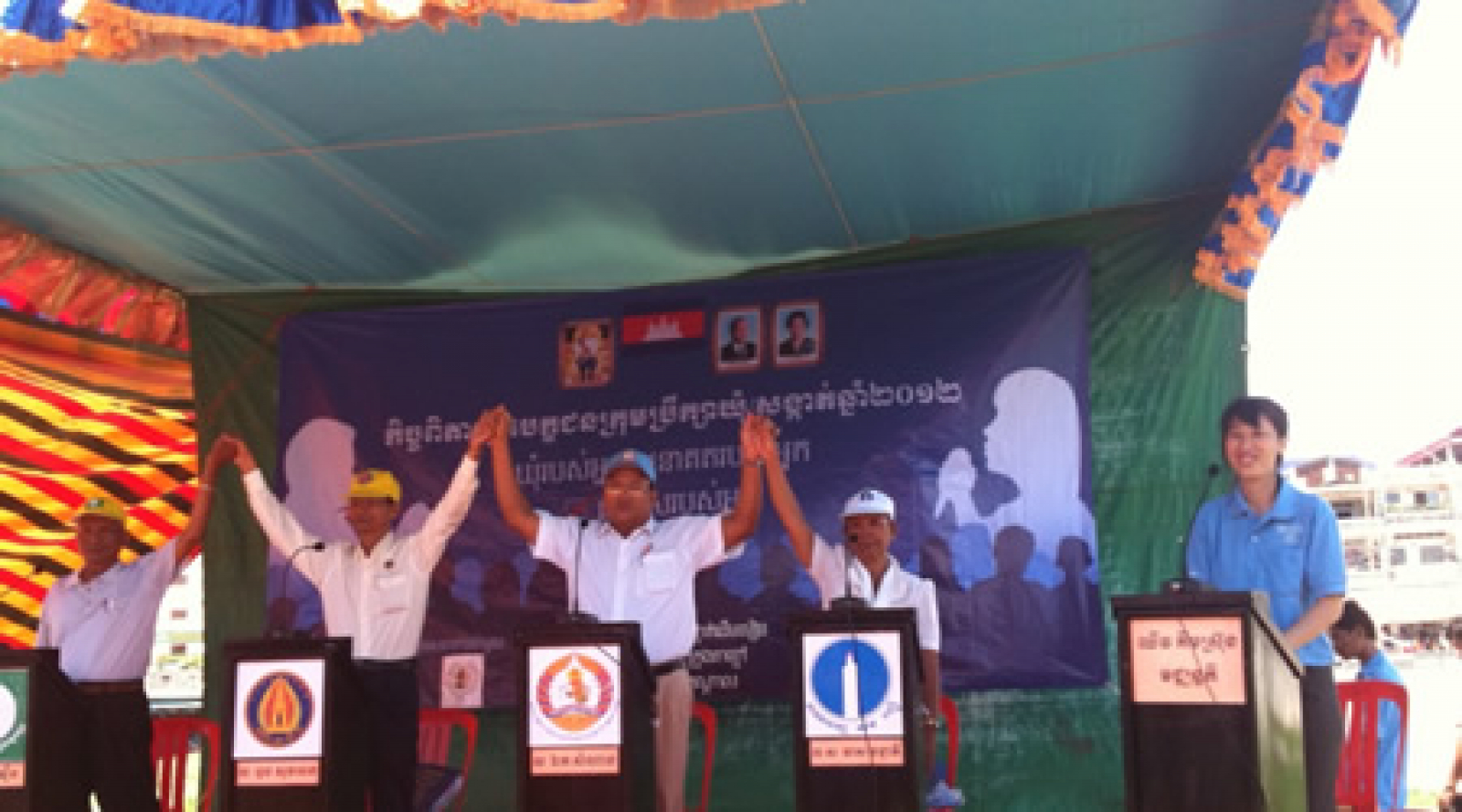
Before heading to the polls to elect local representatives on June 3, Cambodian voters learned about political parties’ platforms at 10 public debates held around the country. Cambodia has 1,633 commune councils – a governing body with five to 11 members responsible for the oversight of land use, licensing and development for approximately 10 villages. In this predominantly rural nation, commune councils serve an important role in establishing trust at the local level between government and citizens.
Building on its experience organizing debates for the 2002 and 2007 commune council elections, NDI organized the debates to help candidates clarify and share their parties’ message. The Cambodian People’s Party (CPP) has ruled national politics for nearly three decades, while opposition parties have struggled to play a larger role. Debates provide voters with information beyond posters and rallies to learn about each party’s campaign message, allowing for a substantive exchange of ideas. To further the impact of the debates, the Ministry of Information allowed them to be broadcast on the radio, giving candidates a rare opportunity to share campaign messages with a national audience, in addition to the more than 7,000 people who attended.
Before the debates, all participating parties agreed on and signed a code of conduct, which explained the debate format and stressed respect for other candidates and a focus on issues. To prepare, candidates worked on key messages and on contrasting their positions against their competitors. They learned to remain focused on their party’s message and past performance rather than resort to personal attacks. Candidates practiced public speaking, including vocal techniques, eye contact, body language and memorable opening and closing statements.
The debates consisted of two parts, one in which members of the local community asked candidates questions and the other in which the candidates asked each other questions. Queries from the community focused on property rights, access to markets and government transparency. A neutral moderator enforced time limits and the code of conduct and ensured that questions from the audience addressed local concerns.
A post-debate survey showed that the debates changed most audience members’ opinion of at least one candidate or party. Candidates said that participating in the debates improved their ability to communicate with voters and they were treated fairly and with respect.
Although the CCP maintained its dominance in the commune councils with 62 percent of votes, the opposition Sam Rainsy and Human Rights parties together were able to garner 30 percent. Building on the success of the commune council debates, plans are moving ahead for debates for parliamentary elections in 2013.
Related:
- Forums Show Cambodians Concerned about Inequity and Corruption
- Report on Constituency Dialogues in Cambodia
- Constituents, Representatives Mix in Newly Expanded Program in Camboida
Published July 27, 2012


